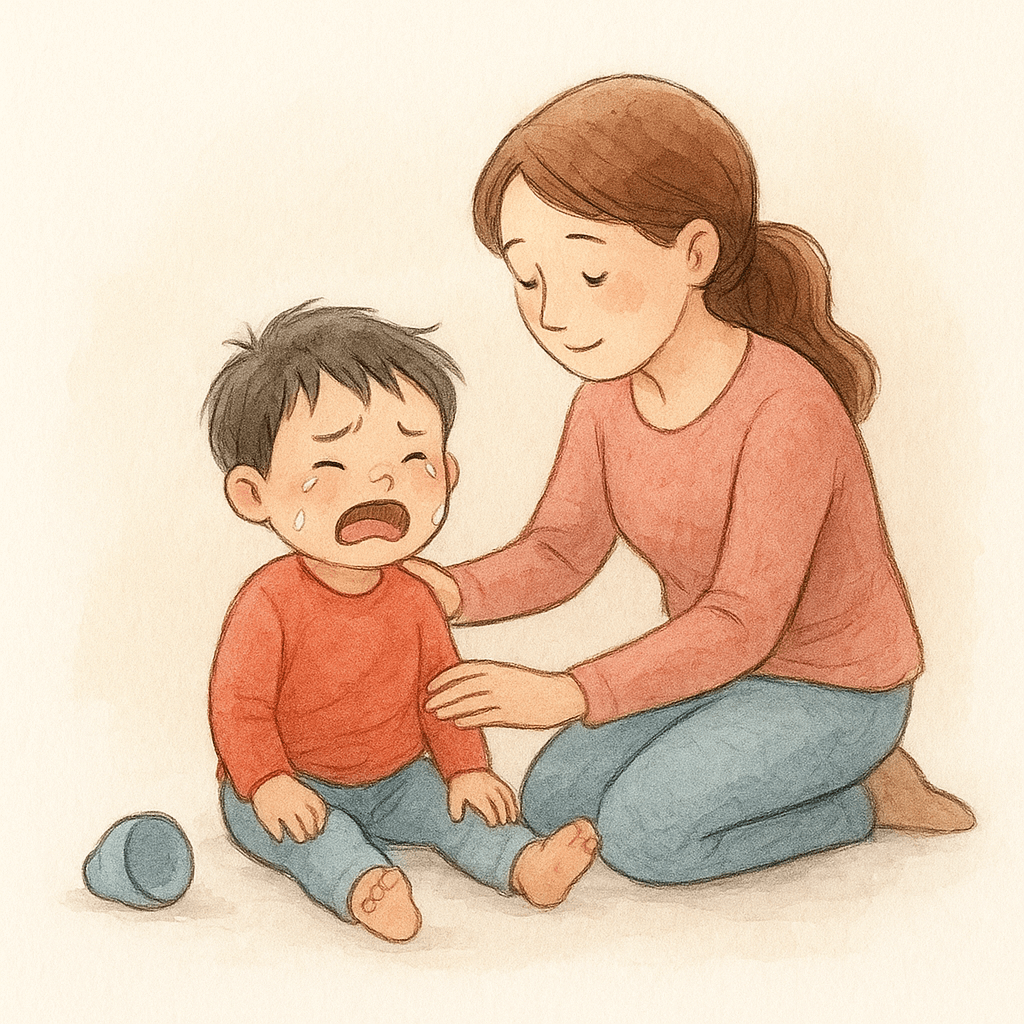
Why Does My Child Throw Tantrums Over Small Things?
Posted on 26th August, 2025 by AdminYesterday, the cup was blue instead of red… and suddenly your little one melted down like the world had ended!
If you’ve been there, you’re not alone. Almost every parent wonders:
“Why does my child throw tantrums over such tiny things?”
The good news? It’s not because your child is naughty. Tantrums are a normal part of growing up. Let’s explore why they happen and how you can gently handle them.
Also check: Kids MagazineWhy Tantrums Happen
-
Big Feelings in a Small Body
Kids (especially toddlers and preschoolers) have huge emotions but tiny vocabularies. When they can’t express their frustration with words, it bursts out as crying, shouting, or lying on the floor. -
Brain Still Growing
The “thinking brain” (frontal lobe) is not fully developed yet. So when your child is upset, logic doesn’t work—they can’t just “calm down” like an adult. -
Need for Independence
Around ages 2–6, kids love saying “No!” because they want control over their world. A small thing—like the wrong cup or socks—feels like a big loss of power. -
Tired, Hungry, or Overstimulated
Many tantrums are not about the object at all. They’re signals of exhaustion, hunger, or too much stimulation.
What You Can Do in the Moment
-
Stay Calm (Even If They Aren’t)
Your calm voice and body show your child they are safe. Shouting back only adds fuel. -
Name the Feeling
Say: “You’re sad because the toy broke.” This helps your child connect feelings with words. -
Offer Choices
Give simple power: “Do you want the red cup or the green one?” Choices reduce frustration. -
Use Distraction or Humor
Sometimes, a silly face or quick game can break the storm. -
After the Tantrum, Hug
Reassure them: “I love you even when you’re upset.” This builds trust and emotional safety.
Also Read: Why Labubu doll is so famous?
Long-Term Tips to Reduce Tantrums
-
Routine is Magic → Predictable meal/sleep times = fewer meltdowns.
-
Teach Words for Feelings ❤️ → Use books, flashcards, or daily chats to expand “feeling vocabulary.”
-
Praise Calm Moments → Notice when they share or wait patiently: “I love how you asked nicely!”
-
Model Calm Behavior → Kids copy you. If you handle stress gently, they’ll learn to, too.
✨ Reassurance for Parents
Also Read: How to boost kids Immunity naturallyRemember—tantrums don’t mean you’re a “bad parent” or your child is “bad.”
They mean your child is learning to handle big feelings in a little body. With love, patience, and gentle guidance, the tantrums will ease as their brain and vocabulary grow.
So next time the world ends over the wrong color spoon, take a deep breath. ?Your child is not being difficult—they are growing.
✅ Takeaway:
Tantrums are not about small things. They’re about big feelings.
And with your calm love, your child will learn how to manage them.